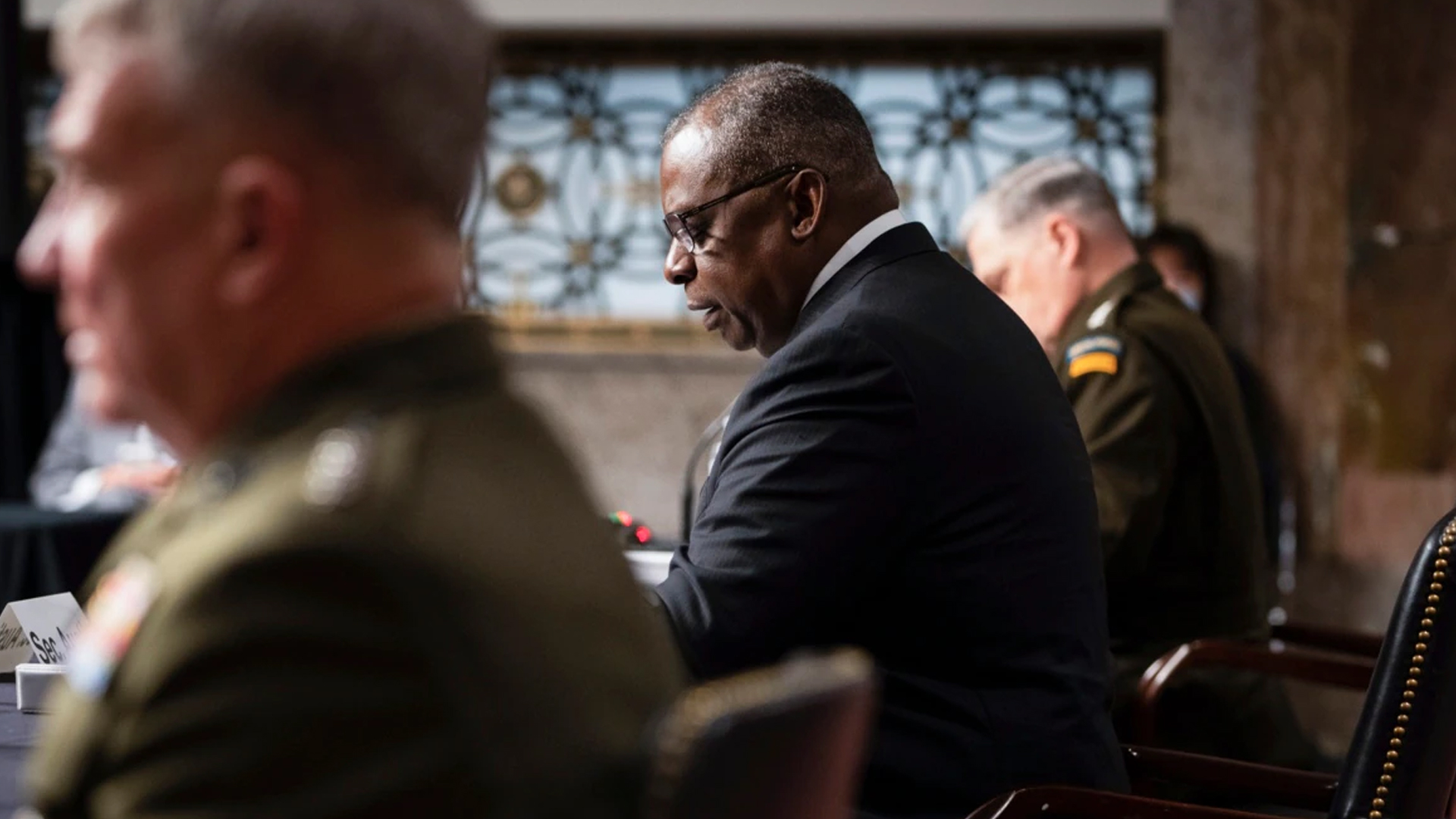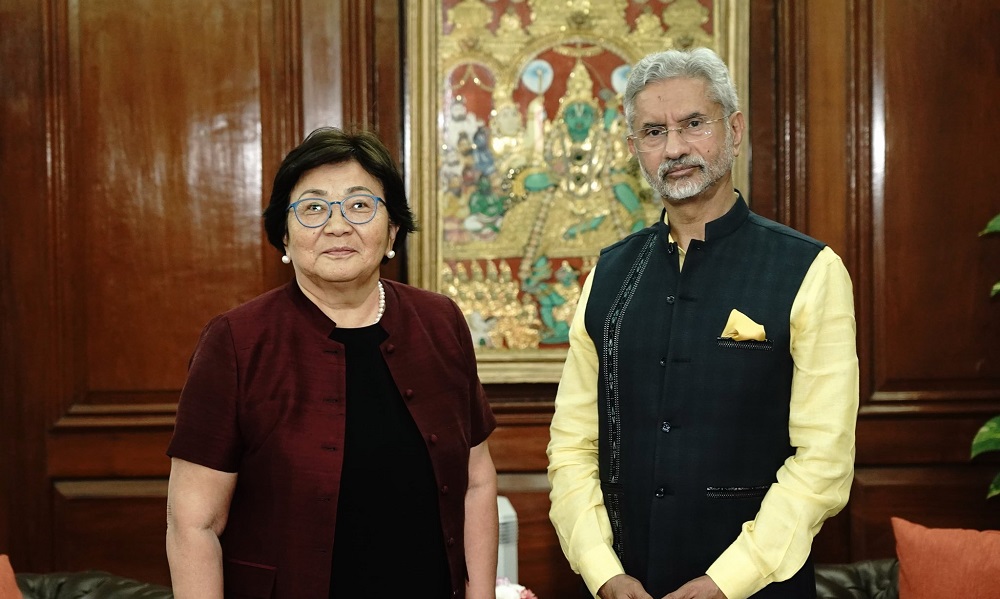Latest News
Collapse of former govt, military rooted in US deal with IEA: CENTCOM chief

Senior Pentagon officials said Wednesday the collapse of the Afghan government and its security forces in August could be traced to a 2020 U.S. agreement with the Islamic Emirate of Afghanistan (IEA) that promised a complete U.S. troop withdrawal.
General Frank McKenzie, the head of the U.S. Central Command, told the House Armed Services Committee that once the U.S. troop presence was pushed below 2,500 as part of President Joe Biden’s decision in April to complete a total withdrawal by September, the unraveling of the U.S.-backed Afghan government accelerated.
“The signing of the Doha agreement had a really pernicious effect on the government of Afghanistan and on its military — psychological more than anything else, but we set a date-certain for when we were going to leave and when they could expect all assistance to end,” McKenzie said.
McKenzie said he also had believed “for quite a while” that if the United States reduced the number of its military advisers in Afghanistan below 2,500, the Kabul government inevitably would collapse “and that the military would follow.”
He said in addition to the morale-depleting effects of the Doha agreement, the troop reduction ordered by Biden in April was ”the other nail in the coffin” for the 20-year war effort because it blinded the U.S. military to conditions inside the Afghan army, “because our advisers were no longer down there with those units.”
Defense Secretary Lloyd Austin, testifying alongside McKenzie, said he agreed with McKenzie’s analysis. He added that the Doha agreement also committed the United States to ending airstrikes against the IEA, “so the Taliban (IEA) got stronger, they increased their offensive operations against the Afghan security forces, and the Afghans were losing a lot of people on a weekly basis.”
Wednesday’s hearing was politically charged, with Republicans seeking to cast Biden as wrongheaded on Afghanistan, and Democrats pointing to what they called ill-advised decisions during the Trump years.
General Mark Milley, chairman of the Joint Chiefs of Staff, had said a day earlier in a similar hearing in the Senate that the war in Afghanistan was a “strategic failure,” and he repeated that on Wednesday.
Defying U.S. intelligence assessments, the Afghan government and its U.S.-trained army collapsed in mid-August, allowing the IEA, which had ruled the country from 1996 to 2001, to capture Kabul with what Milley described as a couple of hundred men on motorcycles, without a shot being fired.
This week’s House and Senate hearings marked the start of what is likely to be an extended congressional review of the U.S. failures in Afghanistan, after years of limited congressional oversight of the war and the hundreds of billions of taxpayer dollars it consumed.
“The Republicans’ sudden interest in Afghanistan is plain old politics,” said Senator Elizabeth Warren, a Massachusetts Democrat, who supported Biden’s decision to end U.S. involvement in Afghanistan.
Tuesday’s hearing also was contentious at times, as Republicans sought to portray Biden as having ignored advice from military officers and mischaracterized the military options he was presented last spring and summer.
Milley said Tuesday that lessons need to be learned, including whether the U.S. military made the Afghans overly dependent on American technology in a mistaken effort to make the Afghan army look like the American military.
Milley cited “a very real possibility” that al-Qaida or the Islamic State (ISIS) group’s Afghanistan affiliate, Daesh, could reconstitute in Afghanistan and present a terrorist threat to the United States in the next 12 to 36 months, AP reported.
The hearings come after US special envoy for Afghanistan Zalmay Khalilzad said last weekend that former president Ashraf Ghani’s decision to leave Afghanistan without warning took everyone, including Washington, by surprise.
In an exclusive interview with Ariana News, Khalilzad said that the night before his departure, the US Secretary of State Antony Blinken had spoken to Ghani on the phone.
He said Ghani had not given any signal as to his intentions.
“Everyone including the US were shocked when this happened,” he said.
However, he implied that had Ghani stepped down as president in the lead up to the IEA’s takeover, things could have been very different.
Latest News
IEA urges World Bank to resume work on 7,000 incomplete projects

Officials at the Ministry of Rural Rehabilitation and Development (MRRD) say 7,000 incomplete projects of the World Bank are at risk of destruction in Afghanistan. They call on the World Bank to resume the work of these projects.
According to them, discussions have been held with the World Bank about these projects, but there has been no result yet.
“7,000 incomplete projects are being destroyed, and if the work is not started, these projects will be destroyed. We ask the World Bank to resume the work of these projects as soon as possible,” said Noorul Hadi Adel, the spokesperson of MRRD.
Meanwhile, members of the private sector also ask international institutions to resume their work in Afghanistan.
According to the officials of this sector, with the start of these projects, job opportunities will be provided for thousands of people in the country.
“These projects create employment for our people and the country will grow a lot,” said Mirwais Hajizadeh, a member of the private sector.
However, economic experts stated if the work of these projects does not start soon, they will be destroyed and the investments made in them will be wasted.
Latest News
Ten people killed by floods in Helmand

Ten people have been killed and six others injured by floods in Helmand province in the past week, local officials said on Friday.
According to officials, seven of those were members of the same family, and they were killed in Kajaki district last night.
“Most of the people moved from vulnerable areas to high lands and mountains, and thanks Allah the number of casualties is low,” Sher Mohammad Vahdat, the head of information of the Directorate of Information and Culture in Helmand, said adding rescue teams and security forces have been dispatched to help people.
It is said that the telecommunication system has also been disrupted due to the effect of floods in Kajaki district. Floods have also destroyed thousands of acres of agricultural land.
Latest News
UN envoy meets Indian foreign minister to discuss Afghanistan

Roza Otunbayeva, the UN Secretary General’s Special Representative for Afghanistan, met with the Indian Foreign Minister Subrahmanyam Jaishankar in New Delhi and discussed issues related to Afghanistan, it was announced on Thursday.
During the meeting, Otunbayeva thanked India for “its critical humanitarian support and longstanding friendship for the Afghan people” and discussed the importance of regional and international cooperation to address prevailing challenges in Afghanistan, UNAMA said on X.
Jaishankar also said on X that the sides exchanged views on the current situation in Afghanistan.
“Underlined that India has provided wheat, medicines, pesticides and school supplies. Appreciate the role of UN agencies as partners in these endeavors,” he said.
-

 Sport4 days ago
Sport4 days agoACL fever grows as fixtures finalized
-

 World5 days ago
World5 days agoUS will not take part in any Israeli retaliatory action against Iran
-

 Latest News4 days ago
Latest News4 days agoOver 50 people dead in traffic accidents over Eid
-

 Latest News4 days ago
Latest News4 days agoUS identifies Kabul airport suicide bomber
-

 Business4 days ago
Business4 days agoAfghanistan-Kazakhstan chamber of commerce opens in Herat
-

 Latest News5 days ago
Latest News5 days agoGood rains enable DABS to increase power production in Kabul
-

 World4 days ago
World4 days agoIsraeli military vows response to Iran attack as calls for restraint mount
-

 Sport2 days ago
Sport2 days agoATN secures exclusive rights to broadcast Paris 2024 Olympics
























